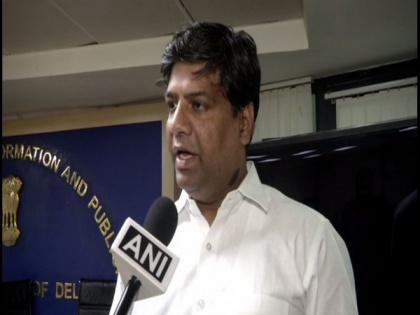Delhi Jal board alleges procedural lapses in BIS water testing
By ANI | Published: November 23, 2019 10:53 AM2019-11-23T10:53:41+5:302019-11-23T11:15:07+5:30
The war of words which erupted between the Delhi government and the Central government over the quality of water in the national capital intensified on Saturday, with Delhi Jal Board (DJB) vice-chairperson Dinesh Mohya alleging "procedural lapses" in Bureau of Indian Standards (BIS) findings.

Delhi Jal board alleges procedural lapses in BIS water testing
The war of words which erupted between the Delhi government and the Central government over the quality of water in the national capital intensified on Saturday, with Delhi Jal Board (DJB) vice-chairperson Dinesh Mohya alleging "procedural lapses" in Bureau of Indian Standards (BIS) findings.
Speaking to , DJB vice-chairperson who is also Aam Aadmi Party's MLA from Sangam Vihar, said, "They have published the report without collecting the sample in a proper manner. The samples which they have collected were not sealed properly. The orgsation did not even tell us what parameters they used to declare water unfit for drinking. They did not inform the officers while collecting the samples."
"You can take the sample of the water from the Chief Minister's office and can get it checked from any laboratory. That water is fit for drinking," he added.
A tussle over the quality of water in the capital started on November 16 after Union consumer affairs minister Ram Vilas Paswan shared the findings of a study conducted by BIS, which suggested that Delhi's tap water was the worst among major cities of the country and is no more fit for drinking without purification.
Just a day after, Delhi Chief Minister Arvind Kejriwal rejected the findings of the report and challenged the Union Minister in a press meeting to share the addresses of the places from which BIS collected the samples.
Paswan, last week, shared details of eleven places from where samples were collected.
( With inputs from ANI )
Open in app